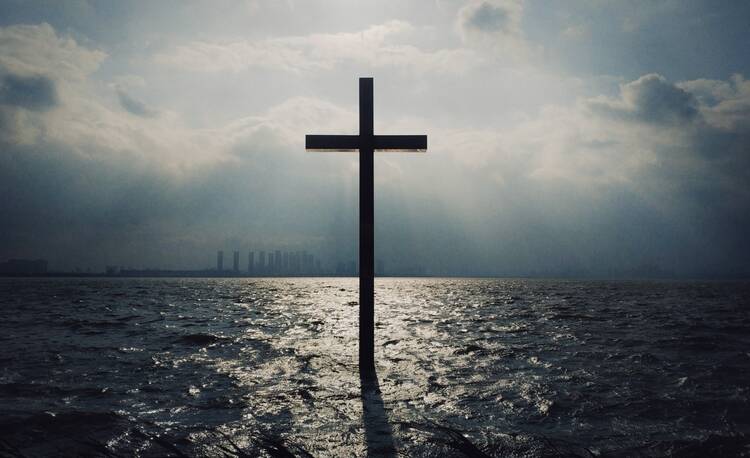A Reflection for the Feast of the Exaltation of the Holy Cross
Find today’s readings here.
…he humbled himself, becoming obedient to death, even death on a cross… (Phil 2:6-11)
Having attended Catholic school for my entire life, I can remember my eyes drifting around my classrooms during particularly uninteresting lessons. A good portion of the time, my drifting eyes would settle on small wooden carvings of Jesus on the cross, usually placed in the doorframe or above the chalkboard. While I always studied the different expressions on Jesus’ face, the severity of his wounds, and the length of his hair, I never really paid much attention to the cross itself. I should have.
While Jesus is undoubtedly the focal point of this image compared to a plain, wooden, T-shaped object he hangs upon, the cross is nevertheless at work in our own lives.
Perhaps the most concrete representation of Christianity, the crucifix is an omnipresent symbol within the Church at large. Catholics worldwide, including myself, wear jewelry representing the cross, ink their bodies with iconography, and hang crucifixes on the walls of their home. While the cross represents Jesus’ Passion and eventual resurrection, how does it play a role in our spiritual journeys?
Today’s feast, the Exaltation of the Holy Cross, memorializes the crucifix that Jesus was put to death on, in addition to recounting the legend of St. Helena’s discovery of the True Cross while on a pilgrimage to the Holy Land. In a Catholic context, the cross, a Roman instrument of torture, evokes triumph over injustice. It takes something brutish and makes it beautiful.
In today’s second reading, we learn of Jesus’ reward for his willingness to die on the cross for us, coming in the form of eternal glory and a seat at the right hand of the Father. This passage inspires devotion to Christ and his sacrifice for us while simultaneously raising questions about how we are rewarded for carrying our crosses every day.
While I always studied the different expressions on Jesus’ face, the severity of his wounds, and the length of his hair, I never really paid much attention to the cross itself. I should have.
While the True Cross is the ultimate representation of selflessness and strength in the Church, we all have conflicts in our lives that manifest as metaphorical crosses. Amid anxiety, depression, grief and addiction, it can be hard to remember that God sympathizes with our struggles just as much as he did with his own Son.
While Christ’s nailing to the cross is one of the most consequential stories within the Christian tradition, two other men were crucified alongside Jesus—the “unrepentant thief” Gestas, and the “good thief” Dismas, who was later canonized.
Although Dismas’ life story is relatively unknown, much like our own personal histories in comparison to Christ, I find the account of his crucifixion fascinating. Dismas tells Jesus to “remember me when you come into your kingdom,” while he is dying on his own cross, to which Jesus replies: “Truly I tell you, today you will be with me in paradise” (Lk 23:39-43).
The “obedience to death” that both Jesus and Dismas display may be a daunting task for readers, but we are not being asked to willingly enter our deaths. All God asks us to do is to bear our crosses with the belief that our suffering will be met with relief in eternal life.
Much like Gestas and Dismas, we are given two choices while suffering on our crosses: We can either rail against God and demand that he end our pain, or face it with bravery and trust in the Lord that our troubles will resolve themselves in his arms, eventually taken to the paradise that Christ reminds Dismas of.
On the feast of the Exaltation of the Holy Cross, let us remind ourselves that while sometimes it may feel like our suffering may go unnoticed, if we carry our crosses with conviction and faith that God sees and hears us, our strength will be rewarded in the afterlife.








